
Greil Marcus is an American author, music journalist and cultural critic. He is notable for producing scholarly and literary essays that place rock music in a broader framework of culture and politics.
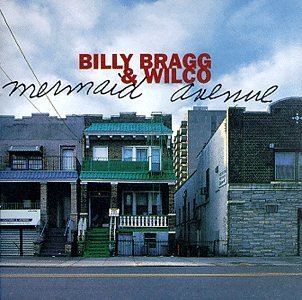
Mermaid Avenue is a 1998 album of previously unheard lyrics written by American folk singer Woody Guthrie, put to music written and performed by British singer Billy Bragg and the American band Wilco. The project was the first of several such projects organized by Guthrie's daughter, Nora Guthrie, original director of the Woody Guthrie Foundation and archives. Mermaid Avenue was released on the Elektra Records label on June 23, 1998. A second volume of recordings, Mermaid Avenue Vol. II, followed in 2000 and both were collected in a box set alongside volume three in 2012 as Mermaid Avenue: The Complete Sessions. The projects are named after the song "Mermaid's Avenue", written by Guthrie. This was also the name of the street in Coney Island, New York, on which Guthrie lived. According to American Songwriter Magazine, "The Mermaid Avenue project is essential for showing that Woody Guthrie could illuminate what was going on inside of him as well as he could detail the plight of his fellow man". It was voted number 939 in Colin Larkin's All Time Top 1000 Albums 3rd Edition (2000).
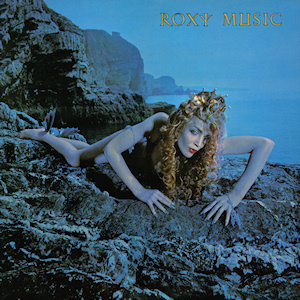
Siren is the fifth studio album by the English rock band Roxy Music, released in 1975 by Island Records. It was released by Atco Records in the United States.

"Money Changes Everything" is a song by American rock band the Brains from their eponymous debut studio album (1980). Originally released in 1978, the song was reissued as the lead single from the album in 1980, by Mercury Records. Frontman Tom Gray is credited as the sole writer of the song, while production was collectively helmed by the Brains and Bruce Baxter. The song was popularized in 1984 by Cyndi Lauper, who released a cover version of the song as a single from her debut studio album, She's So Unusual (1983).

Anniemal is the debut album by Norwegian singer Annie. It was first released by 679 Recordings in September 2004. Annie began recording music in 1999 with her boyfriend, Tore Kroknes, who died in 2001. She returned to recording later that year, collaborating with Richard X, Röyksopp, and Timo Kaukolampi.

Manifesto is the sixth studio album by English rock band Roxy Music. It was released in March 1979 by E.G. in the United Kingdom, Polydor in Europe and Atco in the United States.

Le Tigre is the debut studio album of American music trio Le Tigre. It was released October 25, 1999, on Mr. Lady Records. The album combined pop music with the band's feminist political lyrics. It received positive reviews from music critics.
"Man of Constant Sorrow" is a traditional American folk song first published by Dick Burnett, a partially blind fiddler from Kentucky. The song was originally titled "Farewell Song" in a songbook by Burnett dated to around 1913. A version recorded by Emry Arthur in 1928 gave the song its current titles.

The Masked Marauders is a record album released on the Warner Bros./Reprise/Deity label in the fall of 1969 that was part of an elaborate hoax concocted by Rolling Stone magazine.
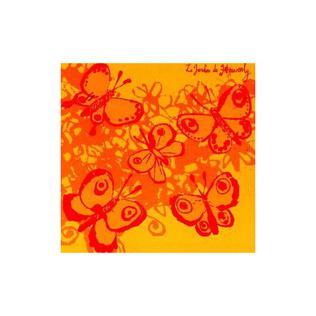
Le Jardin de Heavenly is the second album by twee pop band Heavenly. The album was released on Sarah Records in the United Kingdom and K Records in the United States.

Sarah Eugenie Dougher is an American singer-songwriter, author, and teacher. Dougher began her musical career playing the Farfisa organ in the Portland, Oregon based band The Crabs, and later joined Cadallaca with Sleater-Kinney frontwoman Corin Tucker. She has also released multiple solo albums.
"Tears of Rage" is a song with lyrics written by Bob Dylan and music by Richard Manuel. Dylan and the Band first recorded the song in 1967, but it was not released until 1975 on The Basement Tapes album. In 1968, the Band recorded it for their debut album Music from Big Pink.
"Too Much of Nothing" is a song written by Bob Dylan in 1967, first released by him on the album The Basement Tapes (1975).

"Wigwam" is a song by Bob Dylan that was released on his 1970 album Self Portrait. It was a hit single that reached the Top 10 in several countries worldwide. The song's basic track, including "la-la" vocals, was recorded in early March 1970 in New York City. Later that month, producer Bob Johnston had brass instrument overdubs added to the track; these were recorded in Nashville, Tennessee at a session without Dylan present.
"Across the Great Divide" is a song written by Robbie Robertson. It was first released by The Band on their 1969 album The Band and was subsequently released on several live and compilation albums. According to music critic Barney Hoskyns, it was one of several songs that contributed to The Band being something of a concept album about the American South.

Rope-a-Dope is an album by the American indie rock band Antietam, released in 1994. It is named for the boxing technique. The band supported the album with a North American tour.

Cowboy Sally's Twilight Laments for Lost Buckaroos is an album by the English musician Sally Timms, released in 1999. The album is presented as an ersatz radio program for modern cowboys.
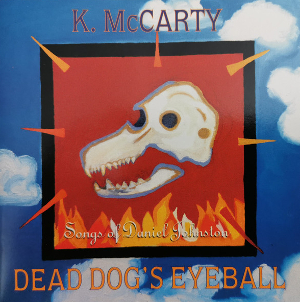
Dead Dog's Eyeball: Songs of Daniel Johnston is an album by the American musician Kathy McCarty, released in 1994. It contains 19 renditions of songs written by Daniel Johnston. McCarty became aware of Johnston when he opened for her former band, Glass Eye, in 1985. McCarty supported the album with a North American tour. An EP of additional Johnston material, Sorry Entertainer, was released in 1995. Dead Dog's Eyeball was reissued in 2005, with bonus tracks and videos. Johnston and his parents were fans of the album.
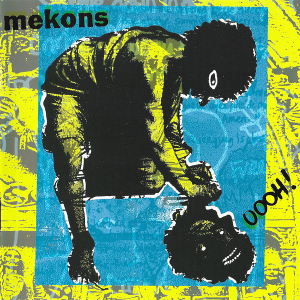
OOOH! is an album by the British band the Mekons, released in 2002. It was inspired by a collaborative visual arts project sponsored by East Street Arts. The album marked the band's 25th anniversary. "Thee Olde Trip to Jerusalem" was released as a single. The Mekons supported the album with a North American tour.














